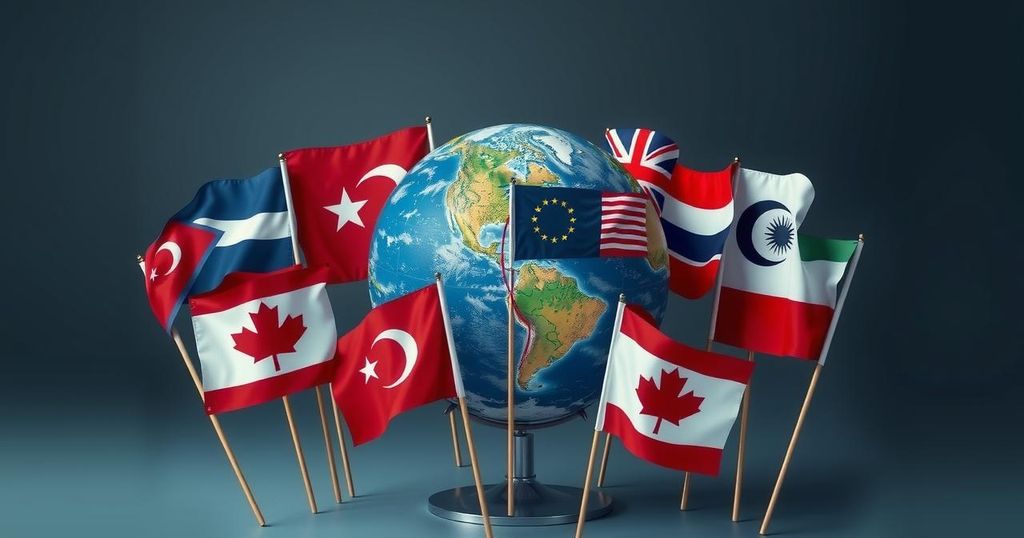Ebrahim Rasool’s Expulsion: A Diplomatic Crisis Between the US and South Africa

Ebrahim Rasool, South Africa’s ambassador to the US, has been expelled amid tensions following his remarks criticizing President Trump. His comments on racial issues drew severe backlash from US officials, while South Africa’s government expressed regret over the situation. Observers believe Rasool’s identity may have influenced the negative reaction. The incident raises questions regarding diplomatic discourse in a polarized political climate.
Ebrahim Rasool, a prominent figure in the anti-apartheid movement and the South African ambassador to the United States, recently faced expulsion amid tense diplomatic relations between the US and South Africa. Following the announcement of his removal, Rasool expressed a sense of calm, indicating that he and his family had prepared for their return to South Africa without regrets.
During a recent webinar, Rasool delivered remarks concerning the policies of President Donald Trump, suggesting that the president was employing strategies of racial supremacy while addressing Africa’s concerns. This statement came after the US government criticized South Africa’s land reform policy, which it claimed unfairly targeted the white minority. Despite local and international debates on his comments, Rasool remained steadfast in his views, asserting the need for honesty in diplomatic engagements.
Responses to Rasool’s remarks were polarized. US Secretary of State Marco Rubio strongly condemned him as a “race-baiting politician who hates America,” whereas South African President Cyril Ramaphosa called the expulsion “regrettable,” emphasizing Rasool’s considerable contributions prior to this incident.
While some South African officials criticized Rasool’s comments, others defended his integrity, suggesting the reaction may be influenced by his Muslim identity and advocacy for Palestinian rights. Observers noted that Rasool was put in a challenging position, as he had to navigate a diplomatic climate that had become increasingly hostile under the Trump administration.
Experts recognized that Rasool’s prior experience, alongside his complex relationships in Washington, meant he had been subjected to scrutiny even before his reassignment. As discussions around his replacement begin, insight suggests that any successor may be expected to align more closely with the Trump administration’s views.
In summary, Ebrahim Rasool’s expulsion from the United States has sparked considerable dialogue regarding diplomatic conduct and the implications of vocal political assessment. His remarks on Trump’s policies emphasized racial dynamics and led to a significant backlash, highlighting the complexities faced by diplomats in contentious political environments. The incident underscores ongoing tensions between South Africa and the US, reflecting broader issues of representation, identity, and foreign policy. Ultimately, Rasool’s experience emphasizes the challenges ahead for any successor and the significant impact of personal beliefs on diplomatic relations.
Original Source: www.bbc.co.uk







